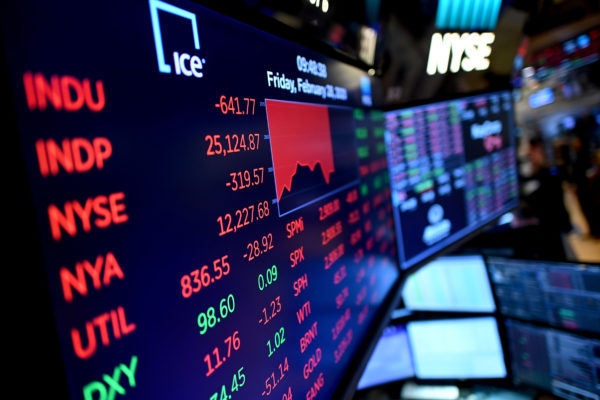Joe Biden’s sweep of primaries means Bernie Sanders’ ambition of socialism for the poor seems out. In its place, Congress and the White House are now devising a $1 trillion package of government grants, unsecured loans and tax breaks to bailout airlines, cruise lines and other highly levered companies.
So long, Bernie. Instead, Washington is only interested in socialism for the connected rich, whose share prices have plummeted.
Yes, the COVID-19 crisis has taken us all by surprise. And yes, the economic fallout will be extraordinary. But why are so many companies already in such grave trouble? The answer is excessive leverage.
Start with the airlines. Rather than using their profits from the past five years to pay off debts and save for a rainy day, the big four — American, United, Delta and Southwest — instead grew their combined liabilities to $166 billion, all while spending $39 billion on share repurchases. That number, which is only from the big four, is almost what they’re asking for now from U.S. taxpayers.
Similarly, the three largest Cruise companies—Carnival, Norwegian, and Royal Caribbean—have liabilities of $47.5 billion and engaged in share repurchases of $8 billion.
Had these companies paid down liabilities instead of using stock repurchases to bid up their stock prices, they would have been far better prepared to weather this emergency. Of course, higher share prices made their stock options more valuable.
This allowed top airlines executives to pay themselves $666 million in compensation over the five-year period. The top cruise executives managed to haul in $448 million. Now, taxpayers are unwillingly being called upon to bail out their profligate behavior.
The vast majority of the economy is going to be affected by the current crisis. Why should sweetheart deals go out to the companies affected first, the companies that have most imperiled themselves by over-borrowing and spending? Are energy, shipping, dining, entertainment, technology, auto and luxury goods companies next? Since vast swaths of the economy will be affected, an initial bailout to the travel industry would sow the seeds of a second round of broad bailouts. The likely beneficiaries will be the most politically connected.
Bailouts encourage moral hazard in the form of reckless lending, the kind that fueled the last financial crisis. Why be responsible by maintaining a low debt-to-equity ratio if the government will always be a backstop? COVID-19 is already revealing problems in the rampant lending during the past few years. But let us not repeat the cycle. Bailouts incentivize the worst behavior. Furthermore, academic research has repeatedly showed that government-controlled lending is wasteful and ineffective.
Even in a crisis, companies with prudent balance sheets will survive and in time, thrive. Despite what politicians might tell you, the airplanes and ships of imprudent companies are physical property that will not suddenly disappear. They will fly or sail again under the same or different name, but hopefully with cheaper prices, better service and different executives. Like a college student sleeping off a hangover, a crisis is a time to sober up by removing debt from the system. It’s not time for another drink.
Republicans rightly opposed such bailouts in the 2008-2009 crisis when they were out of power. They should do the same now that they hold the White House and Senate. American capitalism has always culled the reckless and unwise and rewarded companies and individuals for their prudence. Socialist and planned economies fail for doing the exact opposite, wastefully using government funds to favor those with political connections.
What will a bailout package actually accomplish? Sadly, giving billions to companies will have little effect on the real economy. No one is going to sail on a coronavirus-infested cruise ship because of a government loan. The proposed bailout is simply a handout to Wall Street at the expense of Main Street. We should recognize that there is a tradeoff between minimizing deaths from COVID19 and mandated shutdowns of the economy. Let the bailouts focus on unemployment benefits to the vast number of affected workers. Please, Washington, no one wants socialism for the rich.
John M. Griffin is James A. Elkins Centennial Chair in Finance in the McCombs School of Business at The University of Texas Austin.
James M. Griffin is Bob Bullock Chair Emeritus in Economics and Public Policy at the George Bush School at Texas A&M University.
A version of this op-ed appeared in USA Today.




